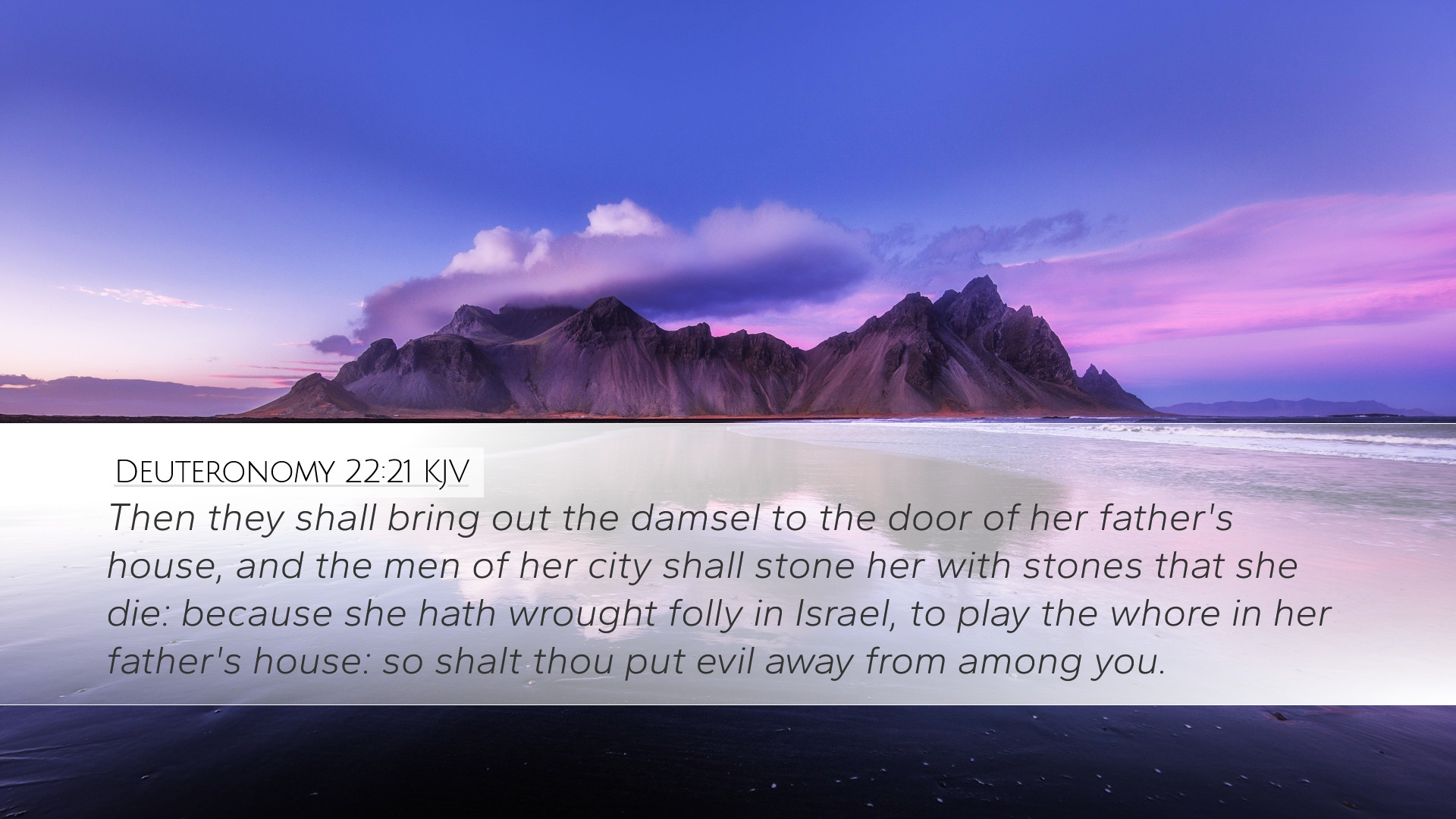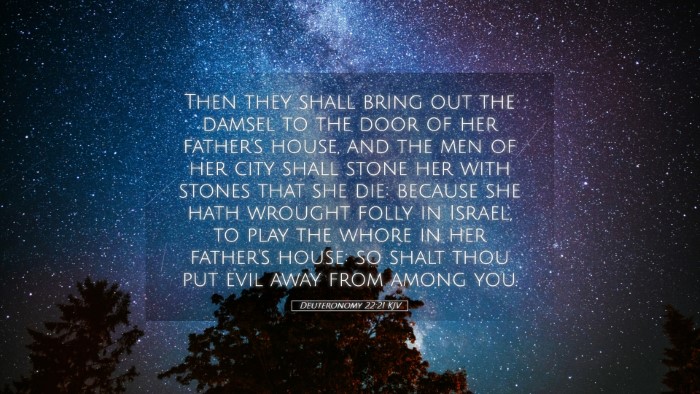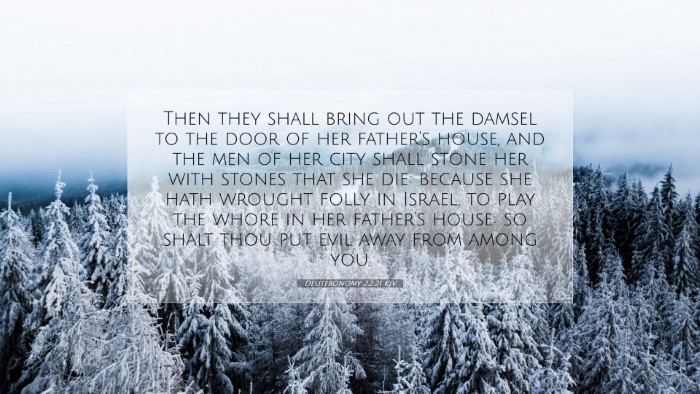Commentary on Deuteronomy 22:21
Context and Overview:
Deuteronomy 22:21 addresses the serious issue of a woman's purity and the consequences of a violation of that purity. The law exemplified in this verse is not only a reflection of the societal norms of ancient Israel but also a theological representation of God's standards for morality and justice.
Text of Deuteronomy 22:21
"Then they shall bring out the young woman to the door of her father's house, and the men of her city shall stone her to death with stones, because she has done a disgraceful thing in Israel, to play the harlot in her father's house. So you shall put away the evil from among you."
Analysis of Key Themes
1. The Importance of Purity
Matthew Henry emphasizes the gravity of sexual morality in Israelite society. The command to bring out the woman and execute her signifies the seriousness of her actions which not only broke familial trust but also jeopardized the sanctity of the community.
Adam Clarke elaborates on the cultural ramifications, asserting that such acts were seen as a direct affront to God’s covenant community. They disrupted the fabric of family and society and could not be tolerated if the nation were to remain holy and distinct among other nations.
2. The Role of Community in Judgment
This verse indicates the collective responsibility of the community toward maintaining moral standards. Albert Barnes points out the significance of the stoning being executed by the men of the city. It reveals not only their involvement in upholding the law but also highlights the necessity of communal integrity.
Matthew Henry further expresses that communal participation in judgment serves to dissuade others from similar transgressions, thus serving the greater good of the society. In a more profound sense, this reveals the communal nature of sin and the collective response that should ensue.
3. Symbolism of the Father's House
The mention of the "door of her father's house" in the execution process is notable. Adam Clarke provides insight into this locale as it underscores the sanctity of the home and the father’s role as a protector of his household's honor. Violating trust in such a sacred space magnifies the severity of the offense.
Furthermore, this location emphasizes the notion of public accountability and the family's integral role within the community. The home is not merely a private sphere but interconnected with the broader societal framework. Therefore, when sacred relationships are breached, there are consequent repercussions that extend beyond the individual.
4. The Nature of Evil and Its Removal
The concluding statement, "So you shall put away the evil from among you," encapsulates the necessity of removing sin from the community. Albert Barnes highlights that tolerating immorality would lead to societal decay. God’s directive aims to preserve a holy and set-apart people, emphasizing the finality and decisiveness required in confronting sin.
Matthew Henry notes the importance of “putting away evil,” suggesting that tolerance of sin would ultimately lead to divine judgment. It bears the weight of God's perspective on holiness and calls the community into accountability. Moreover, this principle applies to various facets of life where moral decay poses a threat to spiritual well-being.
Application for Today
In contemporary settings, while the cultural practices around judgment may differ, the underlying principle of maintaining purity and communal integrity remains relevant. Adam Clarke advises that this passage should prompt reflection on how communities uphold their values and hold one another accountable.
Matthew Henry calls pastors and leaders to consider how they foster a culture of holiness within their congregations, recognizing the risks of complacency in moral standards. This verse acts as a poignant reminder that the health of a community is closely tied to the personal integrity of its members.
Theological Insights
From a theological standpoint, this passage reflects the holiness of God and His intolerance for sin. Albert Barnes interprets this under the lens of divine justice, illustrating how God's laws are intended to direct humanity towards righteousness. The seriousness of the penalty underscores God's direct involvement in human affairs and His demand for moral accountability.
Moreover, the sacrificial system that follows in the Scriptures eventually provides the means for redemption, countering the severity of laws such as these. Such consideration drives home the importance of understanding the law within the narrative of grace provided through Christ.
Conclusion
Deuteronomy 22:21 serves as a profound exploration of morality, community responsibility, and divine justice. Engaging with this text requires a nuanced understanding of its cultural context while drawing out its timeless principles relevant to faith communities today. The insights from Matthew Henry, Albert Barnes, and Adam Clarke together provide a comprehensive exploration that challenges believers to pursue holiness and accountability within their spheres of influence.
May this commentary deepen understanding and inspire lives according to God’s Word.


